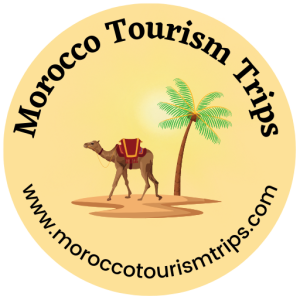Morocco tours
Morocco tours
About Morocco tours
Morocco tours. Morocco is a mixture of Arab, Berber, European, and African elements that all play a role in shaping its culture. Between 1912 and 1956, Morocco was a French protectorate. In addition, Morocco has remained relatively stable since independence and wields significant influence in both Africa and the Arab world. Morocco annexed the former Spanish colony of Western Sahara in 1975. Since then, a protracted territorial dispute has existed between Morocco and the Polisario Front-led Sahrawi people who live there.
Morocco tours
Cultural Tours: Moroccan cultural tours focus on the country’s rich history, architecture, and traditions. They also frequently include visits to ancient medinas, historic palaces and museums, and significant cultural sites such as Casablanca’s Hassan II Mosque and Ouarzazate’s Kasbah of Ait Ben Haddou.
Morocco’s varied landscape, which includes mountains, deserts, and coastline, makes it an excellent destination for adventure tours. Moreover, Hiking in the Atlas Mountains, camel trekking in the Sahara Desert, and surfing in coastal towns like Taghazout are all popular activities.
Culinary Tours: Morocco is known for its flavorful and delicious cuisine, and culinary tours allow visitors to sample local dishes and learn about traditional cooking methods. In addition, tours frequently include market visits, cooking classes, and meals with local families.
Desert Tours: A desert tour is an excellent way to explore the vast and beautiful Sahara Desert. Furthermore, Camel rides, visits to traditional Berber villages, and nights spent under the stars in desert camps are common features of tours.
Morocco’s cities, such as Marrakech, Fes, and Casablanca, are rich in history and culture, and city tours allow visitors to explore these vibrant urban centers. Tours frequently include visits to historic sites, market shopping, and sampling local cuisine and nightlife.
Facts about Morocco
Morocco is located in North Africa, bounded to the west by the Atlantic Ocean, to the north by the Mediterranean Sea, to the east by Algeria, and to the south by Western Sahara.
Morocco’s official languages are Arabic and Berber. French is also widely spoken, and English is gaining popularity as a second language.
Morocco is a constitutional monarchy, with King Mohammed VI currently reigning. Moreover, The King wields considerable power and is regarded as the country’s supreme authority.
Morocco has a diverse geography that includes mountains, deserts, and coastlines. In addition, the Atlas Mountains, which run through the country’s center, are the highest mountain range in North Africa.
Morocco is a popular tourist destination, with millions of visitors every year. The cities of Marrakech, Fez, and Casablanca are popular tourist destinations, as are the Sahara Desert and the beaches along the Atlantic coast.
Moroccan cuisine is known for its unique flavor and spice combinations that are influenced by both Arab and Mediterranean cuisine. Couscous, tagine, and pastilla are popular dishes.
Morocco’s dominant religion is Islam, which is practiced by more than 99% of the population. However, Religions such as Christianity, Judaism, and others are also practiced in the country.
Morocco has a rich history and cultural heritage, with Berber, Arab, and European influences. Interactions with Sub-Saharan Africa and the Middle East have also shaped the country.
Agriculture, mining, and tourism are the most important industries in Morocco. The country is also the world’s largest exporter of phosphate, an important component of fertilizer.
Morocco is a member of several international organizations, including the United Nations, the Arab League, and the African Union. The country has also formed alliances with countries all over the world to promote economic and political cooperation.
elit tellus, luctus nec ullamcorper mattis, pulvinar dapibus leo.
